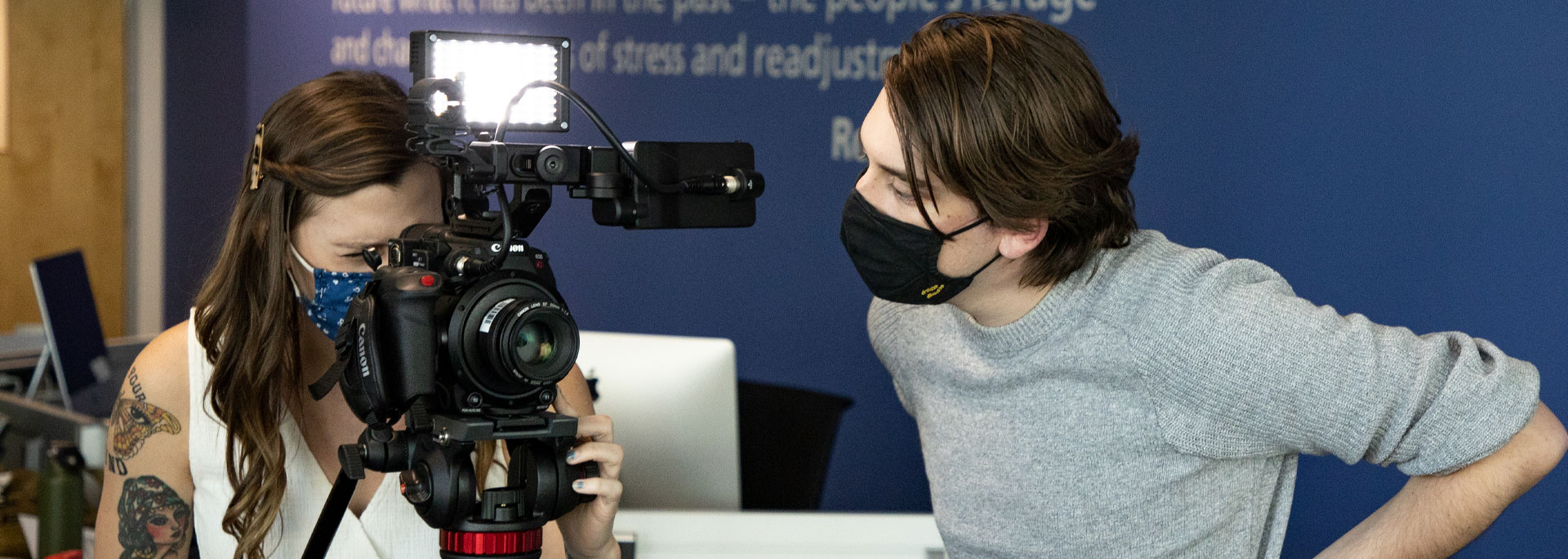The Howard Center for Investigative Journalism at Arizona State University’s Walter Cronkite School of Journalism and Mass Communication took first place in the Outstanding Student Reporting category for the Society of Environmental Journalists (SEJ) 22nd Annual Awards contest.
The center earned the prize for its “Gaslit” investigative project, which examined how regulators are unaware of the amount of greenhouse gases released by oil and gas companies, caused in part by a process of burning off natural gas, known as “flaring.”
The contest features 10 categories, with first-place winners receiving $500 and second-place collecting $250. The SEJ received 589 entries in 10 categories for this year’s contest.
“This series of stories offered readers strong reporting on the under-reported venting and flaring of natural gas from the oil and gas industry. These grad-student journalists demonstrated a good grasp of the subject, including using satellite data,” the contest judges said about “Gaslit.”
The project was born out of a study by Texas A&M University scientists who looked at satellite data and compared regulatory records of flaring in a small part of Texas.
The study compared what companies had reported to Texas regulators against satellite measurements of flaring, and found that satellites observed nearly twice as much flaring than what regulators knew about.
“We knew we had an important story because it primarily revolved around one of the most critical issues of our time: Climate change,” said Jimmy Cloutier, a Howard Center alumnus who worked on the project. Cloutier graduated from the Cronkite School in December 2021 with his master’s degree in investigative journalism.
“We suspected that this issue might not be limited to Texas but could be widespread, which further emphasized the importance of the story,” he said.
The students collected data from satellites equipped with infrared cameras that captured light sources from flaring. Using this data, they estimated the volume of flared gas.
“The challenge was that this data only provided coordinates, not specific state information,” Cloutier said. “So, we worked on mapping these coordinates to specific states and counties. However, for our analysis, we focused on the state level, measuring and calculating how much gas producers in those states were flaring according to the satellite data.”
The other dataset was sourced directly from state regulators. Each state has its own system for tracking and reporting flaring and venting. Some states don’t collect flaring data at all, or they only track resulting emissions. The students had to study these differences and find workarounds, where possible, for creating datasets that could be compared to the satellite-based estimates.
“One of the most challenging aspects of this story was understanding the limitations of the satellite data,” said Howard Center alumnus Isaac Simonelli, who worked on the project before graduating with his master’s degree in investigative journalism in December 2021.
Sarah Cohen, the Knight Chair in Data Journalism at the Cronkite School, oversaw the data effort for this project, but the students took the lead in trying to understand the satellite-based flaring estimates, said Lauren Mucciolo, the executive producer and professor of practice for the Howard Center.
The students traveled to remote locations, including North Dakota, New Mexico and Texas, in order to complete this investigation. The project wouldn’t have been a success if not for their willingness to investigate this complex topic.
“The project exemplifies the dedication and success of the students,” Mucciolo said. “The students went to great lengths to gather valuable material for the project. I am delighted that the students’ hard work and achievements are receiving recognition.”
The Howard Centers for Investigative Journalism at the Cronkite School and at the University of Maryland are made possible by the Scripps Howard Fund, which supports philanthropic causes important to The E.W. Scripps Company and the communities it serves, with a special emphasis on excellence in journalism.
